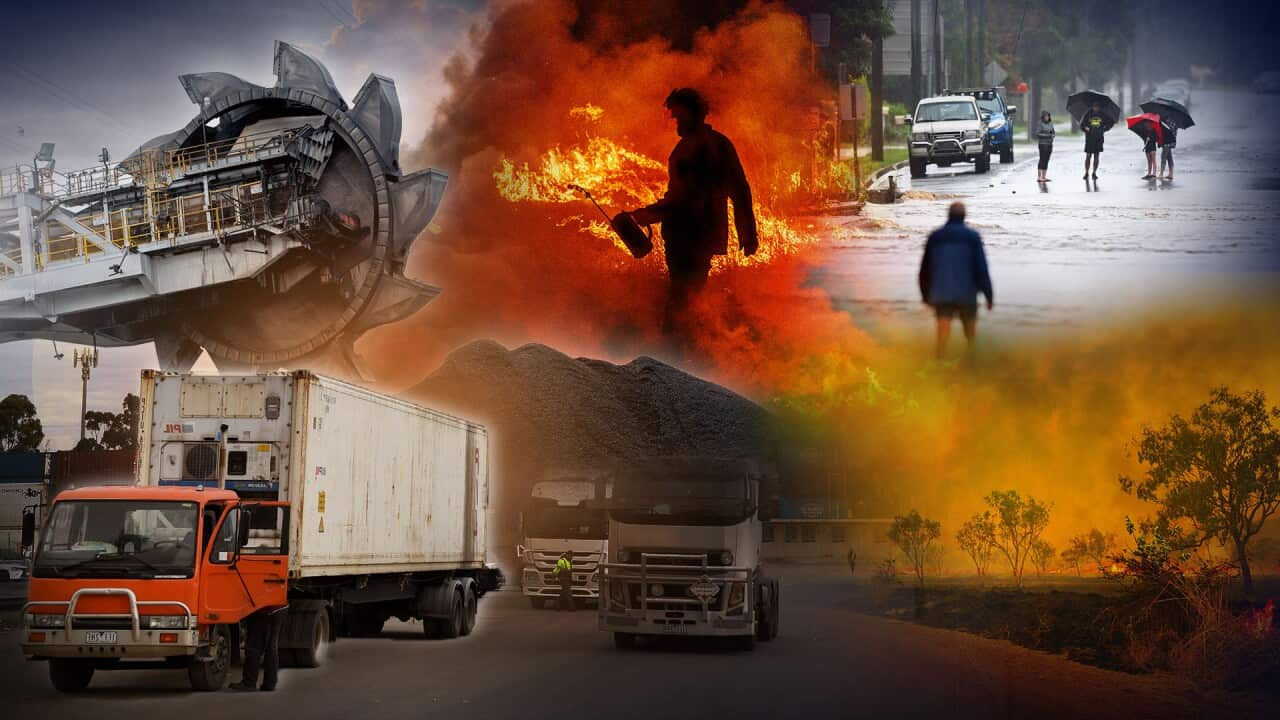Key Points
- Heatwaves can be lethal, but are often underestimated. Could naming them help?
- A city in Spain has become the first to give a heatwave a name.
From Cyclone Tracy to Hurricane Katrina, the world has long been familiar with naming storms, but what about heatwaves?
As climate change makes extreme weather a more frequent occurrence, a city in Spain has become the first to give a heatwave a name.
In June, Seville announced a new heatwave ranking system that would see heatwaves given names and severity levels, similar to the way hurricanes are ranked.
This week, the city named its first heatwave under the new system, ‘Zoe’, with temperatures pushing past 43C.
Europe experienced its this year, sparking fears that increasingly hot summers could become the norm due to climate change.
University of Melbourne climate science lecturer Andrew King said naming heatwaves could help raise awareness of their impacts, as climate change makes them more frequent and intense.
“For a very long time we’ve been naming tropical cyclones, and that's maybe partly because they’re distinct weather systems … you can see them very clearly on weather maps and satellite images,” he said.
“Heatwaves are a bit more abstract in the sense they're harder to see, but I think naming heatwaves really will help raise awareness of upcoming severe heat when it's forecast.”
Heatwaves are a “silent killer”, Dr King said.
“We see increased hospital admissions and increased heat-related illnesses that result in fatalities … so I think putting focus on heatwaves and their impact is definitely a very good idea.”
'Australia is not prepared for heatwaves'
In Australia, doctors have been calling for action on climate change, warning that the healthcare system is not equipped to deal with the growing burden of climate change-related illness.
"Climate emergency is a public health emergency which must get top priority this decade", an open letter signed by the Australian Medical Associations, Doctors for the Environment Australia (DEA) and a number of medical colleges stated in September.
Dr Kim Loo is a GP in north-Western Sydney and DEA's NSW chair.

Western Sydney GP and DEA NSW chair Dr Kim Loo. Source: SBS News / SBS News
Heatwaves pose a serious health threat but are often underestimated, Dr Loo said.
“People aren't really cognisant of heat waves. Because they're not as visual as having a cyclone or flood,” she said.
“People really underestimate, even some of my own patients, are really underestimating how lethal heat waves can be. Working in Western Sydney, we're often six to 10 degrees hotter than the rest of Sydney during heatwaves."
A study by ANU academic Thomas Longden found there were more than 36,000 deaths associated with the heat between 2006 and 2017.
“This equates to about 2 per cent of total deaths in Australia for this time period,” Dr Longden said.
The World Health Organisation says heatwaves are "among the most dangerous of natural hazards" but "rarely receive adequate attention because their death tolls and destruction are not always immediately obvious".
There is “merit to the idea” of Australia following in Seville’s footsteps and adopting a naming system for heatwaves, Dr King said, as heatwaves become more common due to climate change.
“Some types of extreme weather are getting much more common, particularly heatwaves. We're seeing really big trends in frequency and intensity, including in Australia, and we're seeing record-shattering events where temperature records are being broken by two or three degrees Celsius, which is quite a big margin," he explained.
"This is attributable to human-caused climate change like greenhouse gas emissions."










